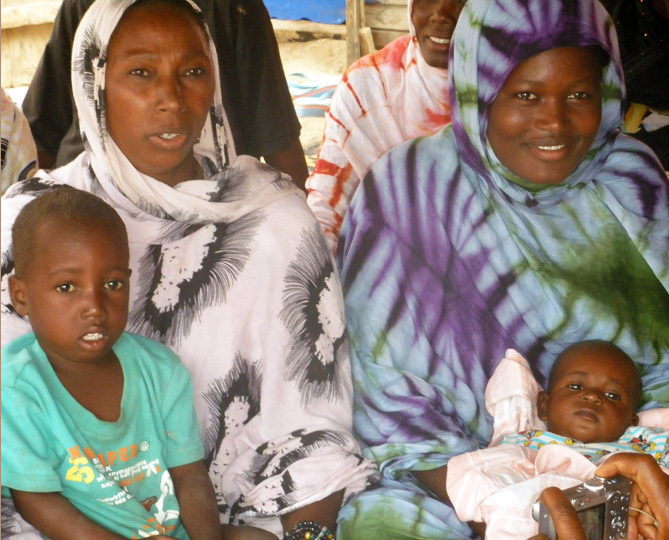

Combatting malnutrition in Mauritania

By M.A. Boussery
When Zenabou Mint Magha first brought her only child to the Aioun therapeutic feeding center in southeast Mauritania, the 7-month-old baby was near death.
“I will never forget that day, I was desperate and without hope - I didn’t think she would survive,” says the 25-year-old mother. “She was very weak, so thin you could count all her bones, with a bald head that her scrawny neck couldn’t even hold up. Her eyes were blank and her face was so pale…Khadi was dying.”
Healthy until the age of four months, the baby had suddenly started to fail. Afraid that her own milk was inadequate, Zenabou started giving Khadi animal milk and cereals, but the child only worsened. Finally, Zenabou sought help. The baby was put on an emergency feeding program to stabilize her, and then mother and child were refered to a nutritional recovery center, part of an MDG-F joint UN programme to combat malnutrition in Mauritania’s two southeastern regions.
In these areas, where food insecurity levels are highest and living conditions are in fastest decline, the underweight prevalence in children under five rose from 35% in 2007 to 40% in 2008, more than twice the national average.
Taking aim at malnutrition
The joint programme is aimed at improving the living conditions of the poorest inhabitants through an integrated package of activities targeting malnutrition in children under 5 and pregnant or lactating women.
Some 1,700 sites have been established for the prevention and management of malnutrition, as well as the distribution of basic staples, vitamin A supplementation, deworming, cooking demonstrations and advocacy activities.
The joint programme is part of the MDG-Fund's work to combat inequalities and help governments reach the anti-poverty Millennium Development Goals, focusing particularly on the world's poorest citizens. We work with the World Food Program in 24 countries to reduce malnutrition and improve food security, the largest area of our work.
The food and nutrition programme in Mauritania is one of four in that country. So far, 23,000 malnourished children and 5,155 anemic women there have been treated at 160 feeding centers. Mobile units have helped reach malnourished children and women in remote or isolated areas.
The programme is also working to boost food security in a country where income is falling and where food prices doubled in 2007. Agricultural training, the provision of fertilizer and seeds and the creation of credit unions are helping to promote vegetable gardening and grain production.
The programme has also created “food for work” sites that have benefitted more than 17,000 people and has distributed grain to 100 village food security stocks, which are used by poor households to borrow food during lean periods. It has also trained women’s cooperatives in the preparation and storage of jams and preserves.
Changing food and nutrition practices
The programme’s activities are supported by a strong communication effort. "Officials told us that children and pregnant or lactating women are very vulnerable and are often at risk of malnutrition and anemia,” says Zenabou Mint Magha. “They need a varied, rich and balanced diet. We have learned good feeding, nutrition and hygiene practices. With the spikes in food prices, it’s difficult to obtain nutritious food, but we do what we can,” she adds.
So far, the routine nutrition screenings, vitamin A supplementation, management and treatment of malnutrition and other interventions have produced a noticeable decrease in vulnerability among young children with micronutrient deficiencies.
The change has been dramatic for Zenabou, who, four weeks after her first visit to the feeding center, takes her place in a long line of mothers who have brought their children for check-ups. “Today my baby suckles with more strength and appetite, and she’s eating a mixture of nutritious foods,” she says. “Khadi is examined every two weeks, and she’s begun -- thank God -- to regain her normal weight. My only child was saved, I am very happy and grateful.”
Scaling up the fight against hunger
"Scaling up the fight against child hunger and malnutrition in south-east Mauritania" is a collaboration between the government of Mauritania and WFP, UNICEF, WHO and FAO. It consists of a package of integrated interventions for the prevention and treatment of malnutrition, targeting 107,000 children and 316,000 women in more than 120,000 households.
The intervention emphasizes sustainable actions for improving food security, changing feeding behaviours and strengthening the management of malnutrition.